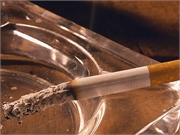
If 2020 is the year you’ve resolved to quit smoking, don’t start vaping. No matter what e-cigarette companies advertise, their products aren’t approved by the U.S. Food and Drug Administration as a safe and effective way to give up tobacco, the American Lung Association warns. And switching from tobacco to e-cigarettes isn’t quitting. “The simple… read on >




























